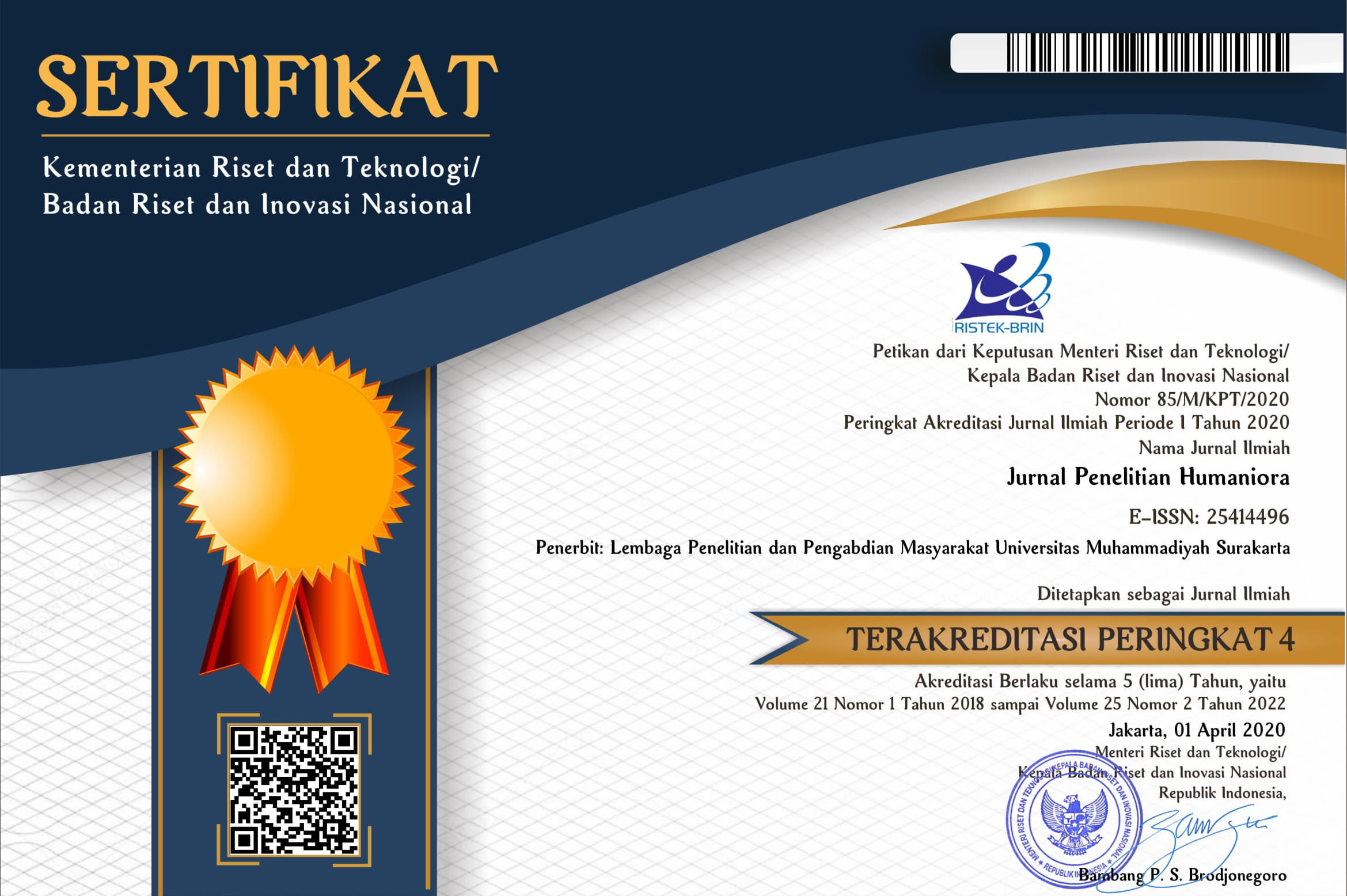EXPLORING STAIN PEKALONGAN STUDENTS’ STRATEGIES IN LEARNING ENGLISH LANGUAGE
Tuti Hastuti(1*)(1) STAIN Pekalongan Jawa Tengah
(*) Corresponding Author
Abstract
This study explored college students’strategies in learning English language. Two questions were presented. The first question is what strategies are used by the students in learning English language and the second question is how do the students use strategies in learning English language. To answer the first question, 49 college students gave respond on Strategy Inventory for Language Learning (SILL) questionnaire. Then, to answer the last question, five students participated in Think Aloud Protocol (TAP) sessions. The data analysis from SILL questionnaire showed that the students were medium user of strategies in learning English language. The strategies then ranked from social strategies, followed by metacognitive, cognitive, affective, compensation, and memory strategies at the latter posi- tion. Then, to find out how the students use strategies in learning English language, think aloud protocol (TAP) sessions presented that the students made use of three major strategies in learning English language cognitive strategies, metacognitive strategies, and compensation strategies. These three strategies were used by the students in three different activities (understanding reading passage, dealing with unfamiliar words or phrases and self-awareness) as the study was limited to reading skills. In conclusion, the students made use of different strategies when doing particular task given to them. At this point, students in some ways have the ability to learn by themselves, that is by using strategies as lecturers cannot always facilitate students’ learning, especially when lecturers teach large classes.
Keywords
Full Text:
PDFReferences
Alhaysony. M. 2012. “Vocabulary Discovery Strategy Used by Saudi EFL Students in an Intensive English Language Learning Context”. International journal of linguistics, 4(2), 518-535.
Brown, H. D. 2000. Principles and Practices of Language Learning and Teaching (fourth edition). New York: Addison Wesley Longman.
Chamot, A.U. 2004. “Issues in Language Learning Strategy Research and Teaching.” Electronic Journal of Foreign Language Teaching, 1(1), 14–26.
Dörnyei, Z. 2005. The Psychology of the Language Learner: Individual Differences in Second Language Acquisition, Mahwah, NJ: Lawrence Erlbaum Associates.
Kazamia, V. 2007. “Using the SILL to Record the Language Learning Strategy Use: Suggestions for the Greek EFL population”. In A. P. Joycey & M. Mattheoudakis (Eds.), 14th International Conference of Applied Linguistics. Thessaloniki: Greek Applied Linguistics Association, (pp. 277–293).
Kern, R.G. 1994. “The role of Mental Translation in Second Language Reading”. Studies in Second Language Acquisition 16, 441-461.
Lee, C.K. 2010. “An Overview of Language Learning Strategies”. The Annual Review of Education, Communication, and Language Sciences, 7, 132–152.
Mingyuan, Z. 2001. “Language Learning Strategies and English Language Proficiency: an Investigation of Chinese ESL Students at NUS”. Journal of RELT, 1(4), 51–73.
Mistar, Junaidi. 2012. “Learning Strategies by Indonesian Senior High School EFL Learners.” E- Jurnal Pendidikan Bahasa Inggris. Volume 2. Edisi Mei 2012.
Ohly, K. 2007. “Older learners of German and their Use of Language learning Strategies.” In C. Gabrielatos, R. Slessor, & J. W. Unger, (Eds.), Lancaster University Postgraduate Conference in Linguistics & Language Teaching. Department of Linguistics and English Language, Lancaster University, (pp. 86–102).
Oxford, R. L. 1999. “Learning Strategies”. In B. Spolsky (Ed.), Concise Encyclopedia of Educational Linguistics (pp. 518–522). Oxford: Elsevier.
Oxford, R. L. 1990. Language learning strategies: What every teacher should know. New York: Newbury House.
Özmen, D. 2012. “Language Learning Strategy Preferences of Turkish Students.” International Journal of Humanities and Social Science, 2(10), 156–161.
Saslow, J. & Ascher, A. 2005. “Making English unforgettable: enhancing acquisition in the EFL Setting”. Top Notch Professional Development Series, (1).
Someren, M. W. V., Barnard, Y. F., & Sandberg, J. A. C. 1994. The Think Aloud Method: A practical Guide to Modelling Cognitive Processes. London: Academic Press.
Zare, P. 2012. “Language Learning Strategies among EFL / ESL Learners: a Review of Literature”. International Journal of Humanities and Social Science, 2(5), 162–169.
Article Metrics
Abstract view(s): 608 time(s)PDF: 306 time(s)
Refbacks
- There are currently no refbacks.











